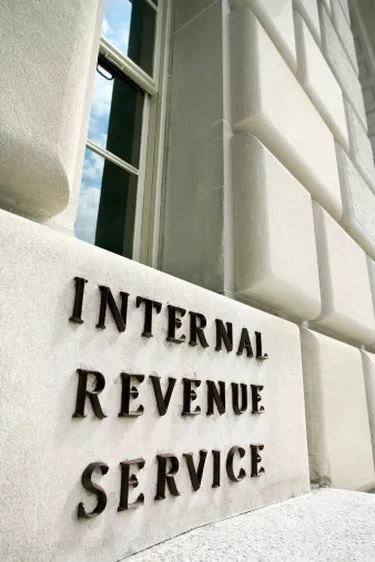
If you've overpaid your taxes, the IRS may have to pay you interest for the time it held your money. But it won't pay interest for the entire time it had that money -- and for the typical taxpayer entitled to a refund for an annual return, it won't pay any interest at all.
Factors
Video of the Day
When it comes to collecting interest from the IRS, the key factor is when the "clock" starts running -- that is, when interest begins to accrue on the money you have overpaid. That, in turn, is determined by how the overpayment is discovered and reported.
Video of the Day
Returns
For a tax return filed on time, the IRS has 45 days from the filing deadline to process your return and send you a refund. Typically, tax returns are due on April 15, meaning that the IRS has until May 30 to get your refund to you. After the 45 days have passed, interest begins to accrue. Note that this 45-day period does NOT begin when you file your return. Whether you file on Jan. 15 or April 15, the IRS has until the end of May to send your refund without having to pay interest.
For tax returns filed after the April 15 deadline, the IRS gets 45 days from the date you filed. If you didn't get around to filing until, say, June 1, then the IRS has until July 15 to get you your refund before it has to start paying interest.
Amended Returns
At some point after you file your return, you may discover an error that entitles you to a bigger refund. In that case, you can file an amended return. The interest on refunds for amended returns is calculated starting from either the original deadline, if you filed on time, or the original filing date, if you filed late, and ending about 30 days before the IRS issues the refund. Say you filed your original taxes on time, then filed an amended return on Oct. 1, and the IRS is ready to pay your refund by Oct. 20. It will pay you interest for the period from April 15 to about Sept. 20.
Considerations
According to "The Tax Adviser," a journal put out by the American Institute of CPAs, the IRS has a certain amount of wiggle room on exactly what it has to do within 45 days to meet its deadline and avoid paying interest: Does it have to actually send you a check, or is it enough for the IRS to acknowledge that you are due a refund and schedule a payment? There has been no official ruling, though court decisions have tended to point to the date on the refund check as the determining factor in whether the IRS acted within the 45-day window.
Rate
The Internal Revenue Code defines the interest rate that the IRS must pay on overpayments. For individual taxpayers, that rate is the "federal short-term rate" plus 3 percentage points, rounded up to the nearest half-point. For example, when the IRS set its rates for 2010 in February of that year, the short-term rate was 0.72 percent. Adding 3 points gives you 3.72 percent, which rounded up to 4 percent. For overpayments by corporations, the IRS pays the short-term rate plus 2 points, rounded up. The federal short-term rate is determined by the market interest rates on U.S. Treasury bonds with less than three years to maturity.